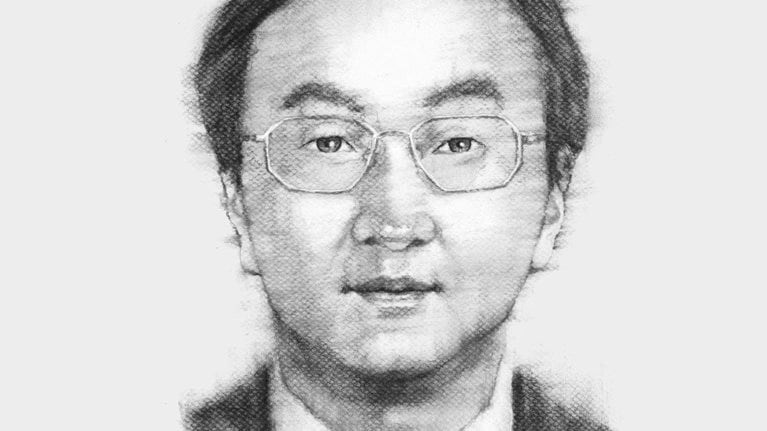For its first two decades, Lenovo Group was largely unknown outside its native China. That all changed in 2005, when the company’s $1.75 billion purchase of IBM’s personal-computer business,1 including the iconic ThinkPad line, catapulted Lenovo into the ranks of the world’s biggest personal-computer makers. Today, the Chinese company is among the world’s largest PC manufacturers and is aggressively pursuing fast-growing markets for tablet devices and smartphones.
Yang Yuanqing, who was in the fledgling company’s first wave of employees, joined Lenovo as a salesman in 1989, just five years after it was founded. He rose rapidly through its ranks to head the personal-computer business in 1994, becoming chief executive officer when founder Liu Chuanzhi stepped down in 2001. He himself stepped down as CEO in 2005 and then served as chairman for four years. In 2009, Yang Yuanqing returned as CEO and Liu Chuanzhi as chairman. Together, they steered Lenovo through the aftermath of the world financial crisis. Following the company’s successful recovery, Liu Chuanzhi retired in 2011 and Yang Yuanqing became chairman and CEO, spearheading Lenovo’s ascent to its current position. In this interview with McKinsey’s Rik Kirkland and Gordon Orr, Lenovo’s chairman and chief executive explains the importance of investing in innovation and why personal computers must evolve.
The Quarterly: There are a lot of people, particularly in the United States, talking about a very rapid decline in the PC industry over the next couple of years. How are you preparing Lenovo for the possibility that might happen?
Yang Yuanqing: Strategy. The industry is absolutely shifting toward mobile devices, such as smartphones and tablets, which are growing fast. But Lenovo has prepared for this shift for many years. Our belief is that we can address those markets as well as our core PC market. In the smartphone sector, for example, we’re number two in China; we’re in the top five now worldwide.
The Quarterly: Mostly driven by China.
Yang Yuanqing: Mostly, yes, but we are entering other emerging markets. Having said that, we just don’t believe the PC is dying. You can use a phone or tablet to do some simple work, but you cannot do everything—it’s simply not as functional as a PC. For example, I prefer to reply to e-mail using a keyboard. We know that we still need to innovate when it comes to the traditional PC, however, and Lenovo has done a lot of work on that.
Yoga, our ultrabook that functions both as a laptop and tablet, is a good example. Before we launched it, we had never addressed the high-priced-laptop market in the US. Now, since launching Yoga, we have a more than 40 percent market share in the $900-and-above price band in the US retail market. That’s from this one product with just two models, a 13-inch and an 11-inch. It’s been a huge, huge success. And it’s not only helped us to grow our volume and market share but also to build our brand. It has repositioned us as a brand known for innovation.
So that’s one example. Another good example is our just-launched table PC, called Horizon, which evolved from the traditional all-in-one PC or desktop PC. We’ve changed it from a one-person machine to a multiple-person machine—a family entertainment center—focusing not just on hardware but also software and applications. It’s this kind of innovation that ensures that the PC won’t die, but actually grow. We don’t think there’s a post-PC era—we see a PC-plus era. We know that the PC is no longer the only Internet-access device, but it’s still critical.
The Quarterly: You became the world’s largest PC maker by some metrics during one quarter last year. How important is that for you and your competitors?
Yang Yuanqing: In the past, we were a Chinese local brand. Now they view us as a very serious competitor—we are more competitive in the market. This is a volume industry, a scale industry. If you have the scale, you have the advantage. So, first, becoming one of the leaders is very important from an efficiency point of view. And, second, being a top PC company promotes our brand. This is even more important for Lenovo, given where we were just a few years ago. Someone in the Chinese media asked me how important it was to become number one, and I asked him, “Can you name the world’s highest mountain?” And he replied, “Everest.” Then I asked, “And what’s the world’s second highest?” That’s why being number one is important.
The Quarterly: Did your competitors do anything wrong?
Yang Yuanqing: I think some were too slow to address the mobile-Internet trend. And one reason is that they believe you can outsource everything, not only manufacturing but even R&D. When you do that—when you rely on external parties to think for you—you lose the spark of innovation.
Our momentum has been stronger than our competitors’ not because we quickly follow whatever Apple does; we don’t. It’s been stronger because we saw the market trends a decade ago and have invested in innovation. We knew that, sooner or later, the PC market would become smaller. I still insisted that we undertake R&D on a smartphone, and, after I took over as CEO, we bought back the phone business that was previously sold and launched the device because we already had it designed. And, fundamentally, we executed. We executed well. So that’s one example of how we have maintained strong momentum.
The Quarterly: This is interesting because many people around the world view Chinese companies as exactly the opposite: they believe Chinese companies have no R&D and just copy other countries’ products. But you view in-house R&D as critical and are investing in R&D centers not just here in China but also in Japan and the United States.
Yang Yuanqing: Well, on the one hand you can say we are focusing on devices—Internet-access devices. That’s pretty basic. But we know that the future is not just hardware. R&D is critical because we must consider the whole package: hardware, software, services, and content. That’s how you give customers the best user experience and rich applications. Our belief is that if you want to be the most innovative, you must leverage the best talent. And that talent and new technology come from everywhere, and different countries and different markets have different demands and requirements. So having global R&D centers is very important.
The Quarterly: Were there challenges when you sought to evolve Lenovo from a China-centered company to a global one?
Yang Yuanqing: There are a lot of challenges with becoming a global operation. Even small things: when we had our first global-operation call, I couldn’t understand everything that was said. Everybody spoke English, but the accents were completely different! Seriously, culture was definitely a challenge—we didn’t know the Western culture at all. And from a business-model point of view, we didn’t know whether our success in China could be replicated in the rest of the world. It was very tough. But I often use this story: if someone always swims in the river and has never swum in the ocean, it doesn’t matter how strong a swimmer he is; he’s never swum in the ocean! He’s scared. But you have to remember that the skills transfer. You can swim very well in the ocean; you just need to become more confident.
The Quarterly: You jumped into the deep end when you bought IBM, and you’re now acquiring a lot of other companies in Brazil and Germany and other places. Are you swimming confidently now?
Yang Yuanqing: We are, and we have realized over time that it’s critical for globalization to be real. Many so-called multinational companies—global companies—are not actually global. Most companies in the Fortune 500 are not global; most of their top executives are American. In European companies, most top executives still come from Europe. So they’re not real global companies. Given Lenovo’s heritage, we have no choice; we have to be genuinely global.
When we bought IBM’s PC business, we were a $3 billion company buying a $10 billion company. To be honest, we didn’t even know we were going to swim in the ocean until we actually were, so we had to hire a coach to teach us. We had two generations of American CEOs who helped the company finish the first stage of globalization: to integrate the company, to make it more efficient. Because of this heritage, our top executives come from everywhere. As an example, our Lenovo executive committee has nine members from six nations.
We also know that if we want to be an even more successful global company, we must leverage local talent. And that’s not just for sales and marketing but also for more roles and functions, such as manufacturing and R&D. Our belief is that we can best serve local customers and understand local markets that way rather than trying to do so remotely. Our ambition is to build Lenovo as a global local company. So in key markets, we want to build a local footprint, either organically or through acquisition. And we already have a strong foundation in China, the US, Japan, and Germany, and now we’re moving into Brazil, India, and Russia.
The Quarterly: In India, you’ve become the biggest PC maker organically. How?
Yang Yuanqing: There are four aspects that apply to how we approach all markets. The first is having the right strategy and good execution. For us, that means moving up the value chain over time in all of our product areas. The second is good products and innovation. The success we had at this year’s Consumer Electronics Show was proof of that—people really saw us as innovative and at the cutting edge. The third is our business model, which is effective and efficient. And the fourth is having a diversified, global team and culture.
In all markets, our business model is important. A direct model, such as Dell’s, is good for enterprise customers. They care about reliability, durability, security, those kinds of things. But it’s not a perfect model for consumers. Consumers care about whether they’re using the latest technology, what’s in fashion. The supply model is different. A relationship model is good for enterprise customers and more profitable for direct sales. But for consumers, we believe a transactional model works best—it must be a push model in which products are pushed from the manufacturer, not requested by customers.
So we built our end-to-end integrated-transaction model in China and we have replicated that in India across all of our functions. In terms of growing organically there, we have approached low-tier cities first in an effort to be the pioneer to develop these emerging markets. Basically, we have been careful not to view India as just one big emerging market—we look at it as a number of smaller markets, and we separate it into different tiers.
The Quarterly: How will people describe Lenovo ten years from now?
Yang Yuanqing: We want to become an even more respected company in the world, with a strong global business across all segments and technologies—PC and mobile, consumer and commercial, mature markets and emerging. We know that China still contributes most of our profit—after all, in the US we had never had a consumer business until a few years ago. And since we’ve just started that business, and in other countries too, we can’t squeeze every penny into the bottom line; we must use some money to invest in the future or invest for the future. We believe the investments in those businesses will start to pay off in the next few years.
We want to transform ourselves from a PC market-share leader into a PC-plus innovation leader. This will ensure we have sustained growth, profitability, and the strong foundation to build a great global company that can last for generations.



